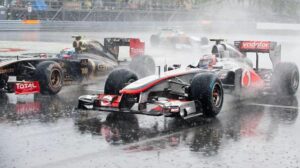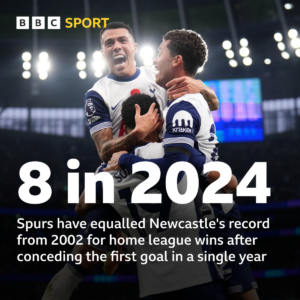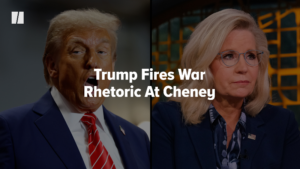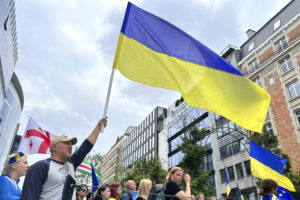‘All eyes on Middle East at pivotal time after Hull’s Saudi win’
After Charley Hull’s sensational win in Saudi Arabia last week, golf fans should maintain their attention on events both off and on the course in the Middle East, writes Iain Carter.
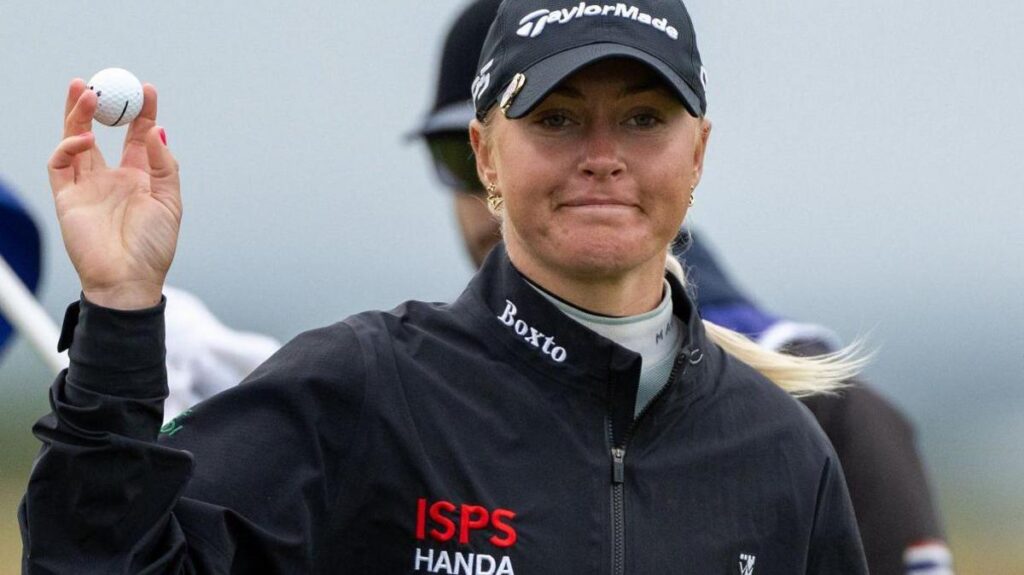
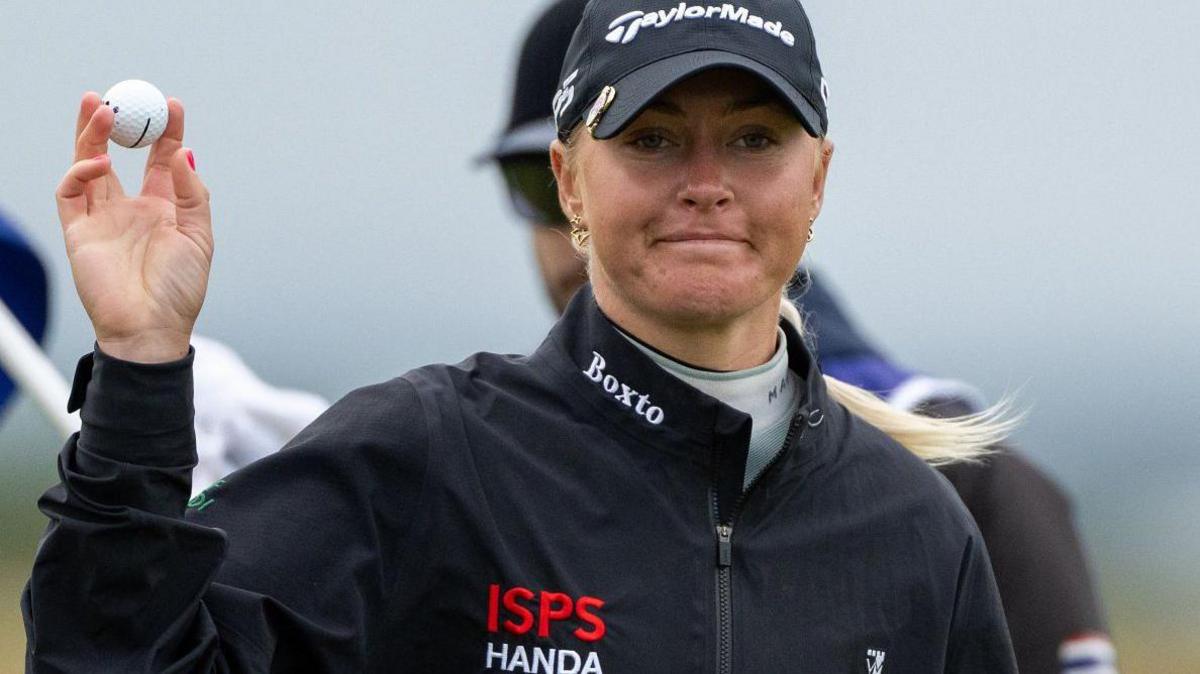
Charley Hull’s brilliant three shot victory in Saudi Arabia has set an immediate agenda because golf fans should maintain their attention on events in the Middle East, both on and off the course.
The 28-year-old Englishwoman’s rediscovery of her winning touch after a frustrating spell of near misses, suggests a brighter future for one of the game’s most natural talents.
“It’s been a long wait and I feel good,” said Hull, who was runner-up six times, including twice in majors, since her last tour victory in 2022. “I’ve been knocking on the door the last couple of years, and this week it all came together.”
Events elsewhere, but neighbouring Hull’s triumph in the Aramco Ladies Team Series event at the Riyadh Golf Club last Saturday, suggest a potentially more settled future for the men’s game as well.
While Hull was surging to a mighty impressive 18 under par for her 54 holes in the Saudi capital, the PGA Tour commissioner Jay Monahan and leading colleagues were attending the nearby Future Investment Initiative conference.
This financial talking shop is run by the Kingdom’s Public Investment Fund (PIF) which was also the presenting partner for the women’s tournament where Hull pocketed her £60,000 first prize.
Figures were considerably higher when The Sun reported last Saturday that a $1bn (£770m) deal has, at last, been struck between Monahan’s organisation and the PIF.
While the agreement has not been confirmed by either party, the cursory details reported make a semblance of sense.
It is well known that since the announcement on 6 June, 2023 of a “framework agreement”, there has been a desire on both sides for ratification.
But it has been considerably harder to achieve than initially anticipated by Monahan and the PIF’s golf-mad governor Yasir Al-Rumayyan, who would reportedly become chairman of the PGA Tour as part of this peace treaty.
PGA Tour players initially railed against the plan because it meant jumping into bed with the body that supplied billions of dollars to finance the breakaway LIV tour.
Why should there be a pathway back to the establishment for those golfers who disrupted the sport’s eco-system and took millions to defect to the upstarts?
Opinions have softened and it would appear this rumoured agreement makes provision for some of the Saudi investment to financially compensate those players who remained loyal to the PGA Tour.
Also, it potentially means that by 2026 the landscape of men’s professional golf may have significantly altered.
Could there be a pathway back to the PGA Tour’s biggest events for LIV stars such as reigning US Open champion Bryson DeChambeau and former world number ones Jon Rahm and Brooks Koepka?
Might PGA Tour players be able to form teams that could compete in LIV’s lucrative tournaments?
Could LIV benefit from existing PGA Tour television deals? That is particularly pertinent given their commissioner Greg Norman has admitted that the absence of a big network contract has provided considerable “headwinds” against LIV’s development.
Who knows?
More certain is that by 2026 the established American circuit will be a slimmed down version of itself. Proposals are due to be ratified by its policy board on 18 November to limit full PGA Tour membership and tournament field sizes.
Only the top 100 rather than the leading 125 on the FedEx Cup standings will retain full cards. Tournament fields will reduce from 156 to 144 and smaller events will reduce from 132 to 120.
The idea is to accommodate slow play after more than a quarter of PGA Tour events were unable to complete a round before darkness because play was tardy.
“I think the direction that they’re going is towards magnifying the value of having a PGA Tour card,” board member Peter Malnati told PGA Tour Radio.
Significantly, the quota of PGA Tour cards going to the leading 10 DP World Tour players, not already exempt, will be unaltered under the plans revealed last week.
Protection of this incentive suggests relations between the Florida-based circuit and Europe’s leading tour remain robust.
This is despite the DP World Tour failing to attract many leading US stars to its autumnal run of bigger tournaments. This expected benefit from the “strategic alliance” between the two leading transatlantic circuits has not materialised.
The European tour is now in the Middle East for its new instituted play-offs to conclude the 2024 Race to Dubai. This week, the top 70 in the standings compete in the Abu Dhabi HSBC Championship.
Such is his points advantage, leader Rory McIlroy could claim his sixth Harry Vardon Trophy for winning the money list before they even get to Dubai for the following week’s DP World Tour Championship, where the field will be whittled down to the leading 50.
The more fascinating contest is likely to be the race for the 10 US cards, which is being led by McIlroy’s closest rivals in the order of merit, Thriston Lawrence of South Africa and Denmark’s Rasmus Hojgaard.
Bath’s Jordan Smith, eighth on the list, is the only UK player currently among the leading 10 candidates, but Northern Ireland’s Tom McKibbin is only one place behind Frenchman Romain Langasque, who occupies the last qualifying berth.
So for several of Europe’s leading figures there is plenty of consequential action ahead in the coming fortnight in the Middle East.
Indeed, both on and off the course, plenty is already happening in that part of the world – it would seem – to influence the sport’s future.

